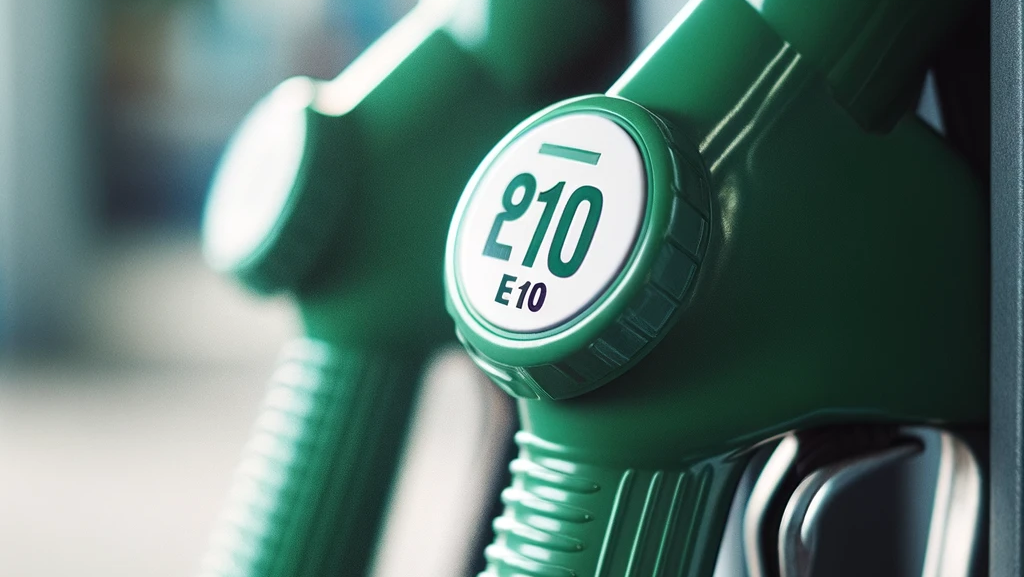Ever wondered about E10 fuel and whether it’s right for your car? You’re not alone. With environmental concerns growing, many drivers are looking for greener alternatives. E10, often dubbed ‘green petrol,’ is one such option gaining popularity. Let’s dive into what E10 fuel is, its benefits, and some common questions answered by an expert.
What is E10 Fuel?
E10 fuel is a blend of 90% unleaded petrol and 10% ethanol, a type of alcohol derived from plants. The ‘E’ in E10 stands for ethanol, and the ’10’ signifies the percentage of ethanol in the mix. This blend is designed to reduce carbon emissions and promote the use of renewable energy sources.
Benefits of E10 Fuel
- Environmental Impact: E10 fuel produces fewer greenhouse gases compared to traditional petrol, making it a more environmentally friendly option.
- Renewable Source: Ethanol is made from plant materials like corn and sugarcane, which are renewable and can be grown repeatedly.
- Economic Benefits: The production of ethanol can boost the agricultural sector by providing farmers with additional income sources.
- Performance: In many cases, E10 fuel can improve engine performance and efficiency, although results can vary.
Common Questions About E10 Fuel
Q: Will E10 Fuel Damage My Car?
A: Most modern cars (manufactured after 2000) are designed to run on E10 without any issues. However, older vehicles may not be compatible due to different fuel system materials that can be affected by ethanol. Always check your car’s manual or consult with your manufacturer.
Q: How Does E10 Fuel Affect Fuel Economy?
A: Ethanol has a lower energy content than petrol, so vehicles running on E10 may experience a slight decrease in fuel economy. However, this reduction is generally minimal, around 1-2%.
Q: Is E10 Fuel Widely Available?
A: E10 fuel is becoming increasingly available worldwide as governments push for more sustainable energy solutions. Check your local petrol stations for availability.
Q: Can I Mix E10 with Regular Petrol?
A: Yes, you can mix E10 with regular petrol without any issues. Your vehicle will run on the blend present in the tank.
Potential Drawbacks of E10 Fuel
- Compatibility Issues: As mentioned, not all vehicles, especially older ones, are compatible with E10 fuel.
- Energy Content: E10 has a slightly lower energy content, which can result in marginally reduced fuel efficiency.
- Storage Concerns: Ethanol can absorb moisture, potentially leading to water contamination if stored for long periods.
Expert Insight
To get a deeper understanding of E10 fuel, we spoke with Dr. Emily Carter, an environmental scientist specializing in renewable energy sources.
Q: Why is E10 fuel considered ‘green’?
A: “E10 is considered ‘green’ because it incorporates ethanol, a renewable resource that reduces reliance on fossil fuels and cuts down greenhouse gas emissions. Its use helps mitigate climate change by promoting a circular economy where waste products from agriculture can be used to produce energy.”
Q: Are there any future developments in biofuels that we should be aware of?
A: “Definitely. Researchers are working on advanced biofuels that can offer even higher blends of ethanol without compromising engine performance or compatibility. Innovations in producing ethanol from non-food sources like algae and waste materials are also promising.”
Conclusion: Should You Switch to E10 Fuel?
Switching to E10 fuel can be a smart move if your vehicle is compatible. It offers environmental benefits and supports the use of renewable resources. However, always check your vehicle’s compatibility and consider the slight trade-off in fuel efficiency. With ongoing advancements, E10 and other biofuels are set to play a significant role in our journey toward a greener future.

